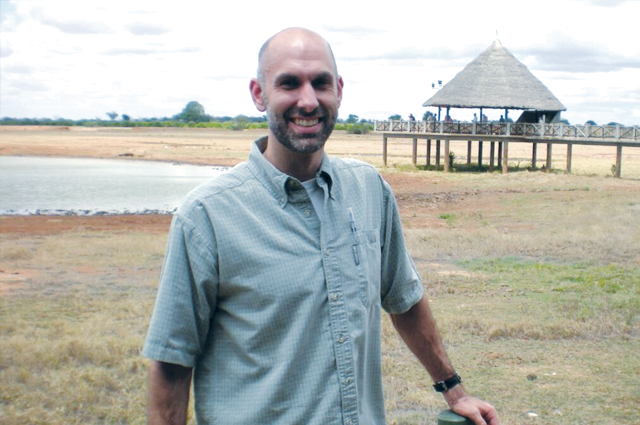The Natural Resources and Environmental Science (NRES) major is an interdisciplinary program that provides the knowledge, skills, and field experiences necessary for a career in environmental science, natural resource management, environmental consulting and other environmental work.
With coursework across the natural and social sciences, you can tailor this program to your interests by selecting both a skill and an environmental emphasis area as key elements of their degree program. The NRES program emphasizes experiential learning through summer camps, internships, research projects and more.
You can pursue many career paths with an NRES degree. To fit your studies with your interests and career goals, you'll choose a concentration area in both analytics and environmental studies:
Analytical Skills Development Areas:
Environmental System Emphasis Areas:
The NRES program has a strong foundation in the natural sciences which prepares you for a variety of technical professions such as:
To learn more about this program, campus life, and chat with an advisor, schedule a campus visit. Virtual visits may be necessary in some cases.

The faculty were thought-provoking. I would not be in my current position without the effort and preparation that the faculty put into every class.
NRES Alum and former Deputy Associate Director of the White House Council on Environmental Quality
source: myUK: GPS
Please login to http://myUK.uky.edu to access your major map and personalized degree audit via the myUK Graduation Planning System (myUK GPS).

In addition to automatic and competitive scholarships from the University of Kentucky, our students are also eligible for a variety of awards from the college. With one of the largest college-based scholarship programs, we awarded nearly $1 million to our students during the 2022-23 academic year. These awards are based on a variety of criteria such as hometown, major, career goals, high school extracurriculars, and more.
For CAFE first-semester freshmen, the scholarship application is now open and will close January 16, 2024.
For CAFE transfer students and current students, the scholarship application opens in January and will close on March 1.

Live where you learn:
The Martin-Gatton College of Agriculture, Food and Environment Living Learning Program (CAFE LLP) is open to all first-semester freshmen at the University of Kentucky.
Through field trips, professional development workshops and service programs, students in our LLP apply their knowledge and passion to global issues at the intersection of food, economics and environment. All students in this program will also enroll in connected courses, share study groups and have an assigned peer mentor - all to help with the transition to college life.
Click here for more information on the CAFE LLP.
Should you choose, you can gain international experience while earning credit towards your NRES degree. We offer a variety of study, research, intern, and service abroad programs for all budgets and comfort levels. Some students have even earned grants and scholarships to fully fund their international experiences.
These programs are designed to broaden your mind and introduce you to unfamiliar ways of thinking and living. Ultimately, these experiences will make you a more competitive applicant in the global workforce.
Each year, many of our graduates attend professional schools in areas such as veterinary medicine, law, pharmacy, dentistry, and more. If you are interested in pursuing a similar path, we offer pre-professional advising services.
Our pre-professional advisors will assist you with:
Students can join organizations and clubs to learn outside the classroom, gain valuable work experience and develop their leadership skills. Many of our students are involved in:
Environmental Science Club
join like-minded students who share a common interest in all things environmental
UK Forestry Club
promotes the practice of forestry through involvement in conclave events, fire cats, tree plantings, and service
UK Greenthumb
engage in environmental activism on campus and beyond
Student Sustainability Council
supervise the distribution of resources to responsibly advance the theory, practice and reality of sustainability
Conservation scientists and foresters manage the land quality of forests, parks, rangelands, and other natural resources.



Source: Bureau of Labor Statistics | Click the link for more info.
Median Salary
$68,300
per year in 2023
Number of Jobs
36,000
in 2023
10 Year Job Outlook
1,300
new jobs (average)
Lawyers advise and represent clients on legal proceedings or transactions.



Source: Bureau of Labor Statistics | Click the link for more info.
Median Salary
$145,760
per year in 2023
Number of Jobs
826,300
in 2023
10 Year Job Outlook
62,400
new jobs (average)
Zoologists and wildlife biologists study animals, those both in captivity and in the wild, and how they interact with their ecosystems.



Source: Bureau of Labor Statistics | Click the link for more info.
Median Salary
$70,600
per year in 2023
Number of Jobs
19,100
in 2023
10 Year Job Outlook
600
new jobs (average)
Environmental scientists and specialists use their knowledge of the natural sciences to protect the environment and human health.



Source: Bureau of Labor Statistics | Click the link for more info.
Median Salary
$78,980
per year in 2023
Number of Jobs
80,500
in 2023
10 Year Job Outlook
4,900
new jobs (average)
Martin-Gatton College of Agriculture, Food & Environment
N6 Agricultural Science Center
859-257-3469